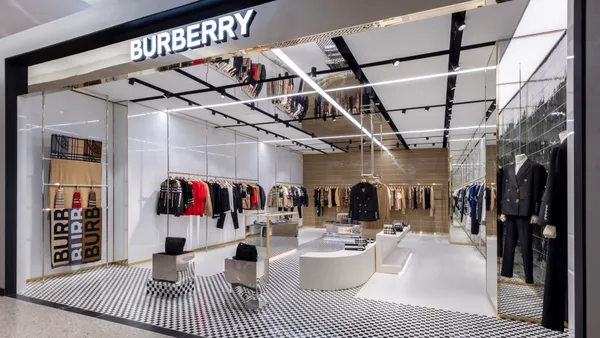Dive Brief:
- The maximum delivery time the average consumer is willing to accept for an online order is just 4.5 days, down from 5.5 in 2012, according to an AlixPartners survey of more than 1,000 consumers in the U.S.
- But fast isn't enough — consumers also want deliveries to be free. Nearly three quarters of respondents to the survey said free shipping has "great impact" on their purchase decision, and only 4% said free shipping is "not a consideration" in their purchase.
- The range of products consumers are willing to buy online is expanding. Clothes and shoes, and books and media, still dominate online purchases, but delivery of groceries and furniture is growing.
Dive Insight:
Consumer demand for fast, free delivery didn't come out of the blue. As Amazon and other online giants enticed consumers with promises of speedy shipping, fast delivery went from incentive to expectation.
A company's shipping service can "make or break a retailer," the AlixPartners survey stated. "Stock-outs or delayed shipments often prompt consumers to abandon their shopping carts and go elsewhere."
Now retailers are scrambling to rework their operations and logistics to hold on to their customer base and ensure they don't fall victim to the "retail apocalypse."
"Retailers need to stay close to their customers — literally," the survey said. While retailers used to invest in distribution centers (DCs) in rural locations with cheaper real estate, they're shifting to DCs closer to large concentrations of consumers, allowing for more rapid order fulfillment.
CVS used this tactic when it opened a logistics hub in Kansas City, Missouri, giving the pharmacy access to major markets by truck and waterways. Starbucks made a similar move, with a DC in York, Pennsylvania, close to several hubs in the Northeast.
From the e-commerce boom, many retailers have grown accustomed to shipping small items, such as apparel, cosmetics and books, but furniture is a different animal. "Resistance to buying large or bulky products is waning," the survey said, with 26% of respondents saying they plan to purchase furniture online for delivery in the next year.
Bulk deliveries require different freight methods, which could present a challenge in transporting in the last mile. Neiman Marcus recently faced this challenge and sought the help of a third-party technology firm to track the deliveries and increase efficiency.
Furniture deliveries do open another opportunity, however, for either retailers themselves or third-party services.
"Demand for value-added services such as installation, assembly or technical services has increased sharply," the report said. More than half of respondents expressed interest in installation or assembly services for an extra fee.
This consumer trend offers retailers the chance to "differentiate themselves with their service and convenience rather than compete only on price and selection."














